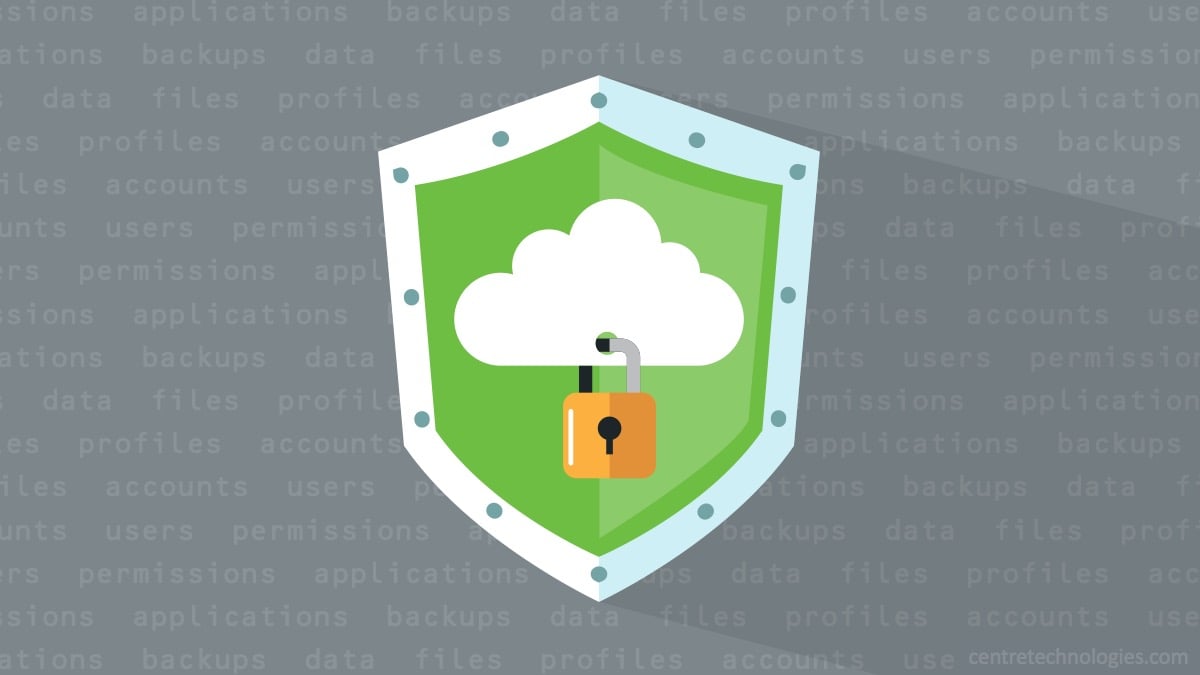3 Examples of the Cloud Preventing Security Threats
A lot of business owners and IT professionals are still skeptical about cloud services, even though public and private clouds have been around for years. To some, "moving to the cloud" is unknown territory and therefore suspect — especially in areas of security. While security may have been a concern back in the early "Wild West" days of cloud services, cloud security has come leaps and bounds since then. Today, the fact is that cloud IT environments are just as secure as on-premise solutions — if not more. Continue reading to find out why.
#1: Blocking malware
Many organizations have a persistent and annoying security problem: employees downloading unauthorized apps. Malware wreaks havoc on the network, going undetected for hours or even days. The average malware dwell time (the time between an attack on a small business' network defenses and detection) can range from 40 to over 800 days. In fact, file-less malware far too often goes undetected because it's memory-based, not file-based.
While managers complain about how unproductive workers are due to unapproved instant messaging apps and slow computers, the real threat to productivity is the potential for malware (or much worse) ransomware. So, how does the cloud protect organizations from malware?
Simply put: migrating to a cloud workspace environment allows IT departments and business leaders to standardize software across the network. This eliminates much of the risk of malware getting into the system with IT having full control of who has access to which software. Plus, adopting cloud solutions provides the ability to deploy cloud-based security that's uniform across the entire workforce, like Endpoint Detection and Response (EDR) agents, Endpoint Protection Platforms (EPP, which combines EDR and Next-Gen Antivirus), and precise permission controls for applications and storage, like Threat Locker. This is why Centre Technologies includes these cloud-based security solutions as part of Secure Managed Services.
#2: Protection from Incidents, Accidents, and Disasters
Some organizations store all customer data in-house. All it takes is a single cyber breach and the server is toast. Or, a simple short in the wiring, and the whole building goes up in flames. If your business is located in the gulf coast region, hurricane season floods and tornadoes pose a threat every year. Whether an accident or natural disaster, data stored on on-prem servers in business offices is only as safe as its backup.
The saving grace for a majority of organizations today is having a cloud backup solution in place that's storing copies of the data in the cloud. This supports an Incident Response Plan (IRP) that allows businesses to operate while IT works to fully restore systems and recover data from backups.
60 percent of companies that lose their data close down within six months of the disaster. Cloud backups are critical to operational resiliency because it's a virtual environment not limited to a single geographical location or data center.
But what if the cloud provider itself had suffered a similar disaster? Well, cloud solutions providers perform daily data backups which are often mirrored to different geographical locations and datacenters — specifically to avoid that kind of scenario.
#3 Stopping Unauthorized Access
Data theft doesn’t always come from external hackers. With the Great Resignation (starting 2021), some businesses learned the hard way. The scenario goes: a company decides to fire a salesperson. But the salesperson saw it coming and downloaded as many sales and contact data as they could before exiting.
Fortunately, if the company hosts its data in the cloud and IT is made aware of management’s plans to terminate an employee, monitoring tools would alert IT. Cloud monitoring tools note any suspicious traffic or downloads, intercepting potential theft so appropriate action can be taken.
One of the most common fears people have about cloud security is handing their data off to someone else. They might be able to access it or steal it.
Business owners are right to be cautious when dealing with something unfamiliar like cloud technology. Partnering with an experienced Cloud Solutions Provider (CSP) and getting a Cloud Readiness Assessment can help you navigate your cloud journey with confidence.





